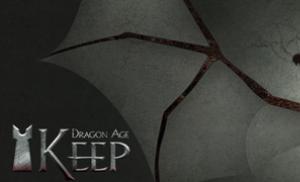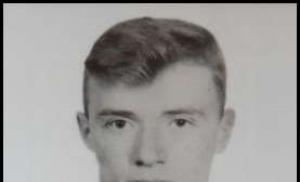Expressions in French. Common phrases in French: revenons à nos moutons
Greetings, compliments, phrases in a letter
| Bonjour, mon cher ami. | good afternoon my dear friend |
| Salut! Comment vas-tu? Comment allez vous? |
Hey! How are you doing? How are you doing? |
| Comment ça va? | How are you? |
| Moi je vais bien. | I'm fine |
| Je n "ai pas de tes nouvelles depuis déja longtemps. | There has been no news from you for a long time. |
| Je suis contente d'avoir reçu votre lettre, merci! | I was glad to receive your letter, thank you |
| Merci pour vos compliments, j "en suis tres touchee... | Thanks for the compliments, I'm very touched. |
| Merci pour les compliments, je vous envoie les miens au retour. | Thanks for the compliments, please accept mine in return. |
| Excusez-moi que je n "ai pas repondu tout de suite. | Sorry for not answering right away |
| J "ai ete partie en vacance. | Was on vacation |
| J "ai été tres prize par mon travail. | I was very busy at work |
| Il me semble que nous avons de nombreux points communs. | It seems to me that we have a lot in common. |
| Vous êtes un homme intéressant et agréable. | You are an interesting and pleasant person. |
| Qui vivra verra. | Wait and see |
| Mieux vaut tard que jamais. | Better late than never |
| Advienne que pourra. | Let it be |
Website responses
Failures
| Je te demande pardon, je corresponds avec un autre homme qui me plait beaucoup et maintenant je ne pense qu"à lui. | Sorry, I'm texting another man that I like and think only of him. |
| Je suis desolée, je ne savais pas comment te le dire, c "est pour ça que je ne repondais pas. | I’m sorry, I just didn’t know how to write to you about this, so I didn’t answer. |
| Je te souhaite tout le bonheur du monde, tu le mérites vraiement! | I wish you the greatest happiness, you deserve it! |
| Je suis desolee, mais vous ne me plaisez pas. L "amour ne se commande pas ... Bonne chance dans votre recherche! | I'm sorry, but I don't like you. You can't command your heart... I wish you good luck in your search! |
| Je suis navrée, vous n "êtes pas le portrais que j" imagine. Je vous souhaite le bonheur et bon courage! | Unfortunately, I imagine my man differently. I wish you happiness and good luck! |
| Merci pour votre attention, mais vous n "êtes pas le genre d" homme que je recherche. Je suis navree... Bon courage! | Thank you for your attention, but you are not the type of man I'm looking for. I'm sorry... Good luck! |
| Monsieur, je suis désolée, vous n "êtes pas celui que je recherche... Bon courage! | Monsieur, I'm sorry, but you're not the one I'm looking for... Good luck! |
| Monsieur, Je suis désolée, mes critères de sélections sont très differents de votre portrais. Je vous souhaite bonne chance, salutations. | Monsieur, I'm sorry, but I'm looking for a person of a completely different plan. I wish you good luck, all the best! |
| Monsieur, je corresponds actuellement avec d "autres personnes et il serait malhonnête de vous donner de fausses illusions. Bonne chance et salutations. | Monsieur, at present I already have someone to correspond with, and it would be dishonest of me to show hope. Good luck and all the best! |
| Vous êtes gentil et sympa, mais je crois que nous, on n "est pas fait l" un pour l "autre, j" en suis désolée, je préfère qu "on arrête là. Bonne chance! | You are sweet and nice, but I think that we are not suitable for each other, I'm sorry, but I prefer to put an end to this. Good luck! |
| Monsieur, je vous remercie pour votre attention, mais je ne peux pas y donner suite en raison de l "écart d" âge qui nous sépare. Je vous souhaite bonne chance! | Monsieur, thank you for your attention, but I see no reason to continue the correspondence because of the big difference in age. Good luck! |
Computer and translation problems
| Je n "ai pas d" Internet chez moi, je vais au club Internet. | I don't have a computer, I go to an Internet cafe. |
| J "avais des problèmes avec l" ordinateur. | Computer didn't work |
| Je viens de commencer à apprendre le français. | I just started learning French. |
| J'utilise un traducteur informatique, parfois la traduction n "est pas bonne, alors posez-moi des questions. | I use an auto-translator, please ask if something is not clear. |
| Veuillez patienter le temps que je traduise ma reponse en francais. | Please wait while I translate my answer into French. |
| Pour l'instant j'aimerais bien nous écrire en anglais, si c'est possible. | I would like to correspond in English, if possible. |
| Malheuresement, je connais le français pas très bien, mais j "espère l" apprendre bientôt. | Unfortunately, I don't speak French well, but I hope to learn it soon. |
Photo
Questions and requests in a letter
| Parle-moi de toi. | Tell me about yourself |
| J "espere que tu vas bien? | I hope you're all right? |
| Parlez moi un peu plus de vous. A mon tour je vais vous parler de moi plus en detail. | Tell me about yourself, I will write you a detailed letter too. |
| Qu "est-ce que vous aimez? N" aimez pas? | What do you like? what don't you like? |
| Comment imaginez-vous votre future compagne? | How do you imagine a life partner? |
| Decrivez-moi votre travail, vos proches, vos passions. | Tell us about your job, family and hobbies. |
| J "aimerais savoir pourquoi cherchez-vous une femme russe? | I would like to know why you are looking for a Russian wife? |
| Qu "en pensez-vous? Qu "en penses-tu? |
What do you think about this? What do you think about it? |
| J "ai besoin de ton conseil. | Need your advice. |
Love and relationships
| Je pense a toi. Je pense a vous. |
Thinking of you Thinking about you |
| Je tiens a toi. | You are dear to me |
| Tu me manques... | I miss you |
| Quant à moi, j "ai tout pour être heurese sauf un homme aimé que je ne peux pas trouver ici, dans mon pays. | I have everything here for happiness, but the only thing missing is a loved one, whom I cannot find in my country. |
| Je suis prête à quitter mon pays si je rencontre ma moitié. | Ready to leave the country if I meet my other half. |
| Mais... Je voudrais me rassurer que mon élu peut assurer une famille, au moins le temps que je puisse trouver du travail car je me rends compte qu "en partant je coupe les ponts et je dépends de lui. | But... I would like to be sure that my man will be able to support his family until I find a job, because. I understand that when I leave, I burn bridges and will depend on him. |
| Quand les enfants grandissent et commencent à vivre leurs vies, alors tu comprends que tu veux partager la vie avec une personne aimée, lui offrir et recevoir l "amour et l" attention. | When children have already grown up and live independently, you want to be with your loved one, love and be loved, take care and have someone take care of you. |
| J "ai le vrai desir de fonder un couple stable et solide. | I really want to create a friendly and strong family |
| Je veux être heureuse et rendre heureux mon homme. | I want to be happy and make my man happy |
Praise France and the French
We discuss the meeting
Telling about ourselves
| Je veux vous parler un peu de moi. | I want to tell you about myself |
| J"aime... chanter dancer voyager lire broder coudre tricotter jardiner cultiver des fleurs la nature la music les spectacles le sport l'art les animaux les diners aux chandelles les balades que les soirees entre amis |
I love.. sing dance travel read embroider sew to knit dig in the garden grow flowers nature lmusic watch performances sport art animals candlelight dinners both walks and evenings with friends |
| Je suis douce souriante tendre Complice gentille caline optimiste sentimentale dynamics calme equilibree comprehensive feminine naturelle gaie joyeuse genereuse signee elegante cultivee sensible sensuelle |
I (character description) soft funny tender friendly Darling affectionate optimist sentimental energetic calm balanced understanding feminine as she is funny cheerful not greedy well-groomed elegant educated sensitive sensual |
| Je suis incapable de commetre une infidelite, | I am incapable of change |
| Je prends plaisir à cuisiner et à recevoir. | I love to cook and welcome guests. |
| Le sens de famille a beaucoup d'importance pour moi. | For me family is very important |
| La solitude me pèse, je ne veux plus vivre seule. | Loneliness presses on me, tired of being alone |
| Je suis tres ouverte aux gens, au monde qui m'entoure. | I am open to people and the world |
Describing the man of your dreams
| J'espère rencontrer un homme | Hope to meet a man |
| serieux soigne affectueux sportif dynamics gai myr franc comprehensif tendre calin pas macho cultive tolerant attentionne stable |
serious well-groomed loving sports active cheerful mature frank understanding gentle affectionate not macho cultural bearable attentive reliable |
| honnete respondable de l'humour au bon coeur genereux sentimental romanticism ouvert au dialogue respectueux d'autrui sur qui on peut compter ayant une preférance pour la vie en ville avec une bonne culture generale |
decent responsible with humor big hearted generous sentimental romantic open dialogue respectful of others who you can rely on preferring to live in the city with a good cultural level |
| pour être heureux a deux. | to be together happy |
Saying goodbye in a letter
| Gros bisou. | A peck on the cheek |
| Je t "embrasse. Je vous embrasse. |
Hug you) Hugging you) |
| J "attends la reponse avec impatience! | Really looking forward to the answer |
| A bientôt, j "espère. | Hope to see you soon |
| Bien a vous Bien a toi. |
All the best All the best (to you) |
| Cordiales salutations | cordial greetings |
| Passez une bonne soiree. | Have a nice evening) |
| Bonne journee. | Have a nice day |
| amicalement | friendly |
| Au revoir. | Goodbye |
| Adieu. | goodbye forever) |
You can get acquainted with French colloquial words and expressions not only in the course of communication with native speakers and while watching films in French. To do this, there are special dictionaries that give colloquial versions of many words we know. Surprisingly, in French, even words denoting the most ordinary objects and things have their colloquial equivalents.
So, the first word that I would like to draw attention to is “water”. In Russian, this is WATER and nothing else, but in French ...
une flotte - water
Examples: Je boirais bien un verre de flotte. Il est tombé beaucoup de flotte cette nuit.
une salade - an unpleasant, complex and confusing situation, intrigue (the term is quite common, so many French do not even consider it colloquial).
Example: Dis a ta soeur d'arréter ses salades, sans quoi je ne viens plus vous voir!
Also, the word has the meaning of "lie", and the expression raconter des salades - to lie, to tell tales.

Example: Ne fais pas attention, elle raconte encore des salades.
une plombe - hour (une heure)
Example: Qu'est-ce que tu foutais, Daniel? ça fait trois plombes qu'on t'attend!
This word is used in particular when they want to say that some action or process takes a very long time.
Example: Je lui demande pas à lui, il va mettre une plombe à me répondre!
As many as three colloquial equivalents have the word "an" (year).
un balai - only when it comes to age (after 25 years).
Example: Il est parti en préretraite à 58 balais.
une berge - when it comes to the age of 15 years.
Example: Il s'est marie, il avait 25 berges, il en a 45: ça fait donc 25 ans.
une pige - the word is used to denote the duration of something (from 10 to 100 years).
Example: ça fait 30 piges que Marcel et Yvonne sont maries.
le cagnard - the sun (le soleil).
Example: Le printemps c'est ce petit cubi qui bourdonne sur les quais en plein cagnard.
Also, the word "canard" refers to the newspaper.
Tu as achete le canard? – Pas encore.
In France, to avoid confusion, the well-known newspaper Le Canard Enchainé is simply called le Canard.
The word le canard also means "duck" and "newspaper duck" (false news or information).
les bornes - kilometers (kilometres).
Example: On va rouler encore quinze bornes.
une bafouille is a letter (une lettre), and the expression "écrire une bafouille" means "to write a letter or strike a couple of lines."
Example: Tu crois qu'il m'écrirait une bafouille pour me dire comment ça va? – Do you think he will strike me a couple of lines…?
un bouquin - book (un livre) Despite the fact that these two words compete, in dictionaries the mark familier at the word "un bouquin" is not yet in a hurry to remove.
The word "doctor" has many synonyms in Russian, but there is no colloquial variant. The French have such a word - le toubib.
Qu'est-ce qu'il t'as dit, le toubib? Rien de grave?
un papelard - a piece of paper (papier), something not particularly important handwritten or printed on a piece of paper.
Example: J'ai reçu un papelard de la banque comme quoi j'étais à découvert.
Les papelards = les papiers d'identité - documents.
Example: Il a perdu tous ses papelards.
In general, these are different papers.
Example: Je sais pas où poser mon gâteau, enlève-moi tous ces papelards.
un pépin - an umbrella (used in particular by the beautiful half of humanity).
Example: Ahzut! J'ai oublié mon pépin chez le dentiste!

Men also have their own "umbrella", they call it "un pébroque".
Example: Ah merde! J'ai laisse mon pébroque dans le taxi!
le rencard - meeting (rendez-vous). In Russian, the meaning of the word "rendezvous" has a connotation of some kind of fatality or seriousness, while in French it is just a meeting. Therefore, instead of rendez-vous, they often say le rencard.
Example: Bon, je me tire, j'ai un rencard.
le boulot - work (travaille) is increasingly found in blogs, press, radio, television, cinema.
Example: Alors les filles, ça marche le boulot?
But the verb travailler (to work) is increasingly being replaced by the word "bosser".
Example: Qu'est-ce qu'on a bossé hier toute la journée!
In Russian, in colloquial speech, the car is called a "wheelbarrow". In French, une bagnole (la voiture). Moreover, the term is used on a par with the word "la voiture".
Example: Avec toutes ces bagnoles on a du mal à traverser la rue.
cafter=denoncer - to inform, slander, knock (used especially in a school environment)
Example: Qui c'est qui a cafe? - Who snitched?
les quenottes - (teeth is a childish common word)

Examples: Oh, il a une quenotte qui pousse! Fais voir tes petites quenottes…
les ratiches - teeth (a less common, but understandable term)
Example: T'as vu le mec, il lui manque trois ou quatre ratiches devant, quand il sourit c'est Frankenstein!
en cloque - to be pregnant, to walk with a belly.
Example: Georges ne pourra pas venir avec nous, sa femme est en cloque.
Interestingly, the first meaning of the word la cloque is a bubble or swelling on a painted surface (syn. boursouflure).
Example: A cause de l'humidité, il y a des cloques dans la peinture.
And the second is callus (une ampoule).
Example: A cause du frottement de ses nouvelles chaussures, il a une cloque au talon.
polichinelle - a puppet, a person who can be easily controlled.
And the phrase avoir un polichinelle dans le tiroir literally translates as "to have a puppet in a box."
ne pas pouvoir sentir = détester - "can't bear the spirit" or literally "can't feel".
Example: Je ne peux pas sentir ma belle-soeur, c'est une vrai peste!
This phrase is used not only in relation to people, but also in relation to animals and things.
Examples: Ma soeur ne peut pas sentir les chats, elle est carrément allergique. Je peux pas sentir la choucroute, j'en ai horreur!
A very unusual use of the phrase "en jetter" - "to produce an effect", but the translation uses completely different words.
For example: Dis donc, ton blouson, ca en jette! What a cool jacket you have!
Ca en jette, ce nouveau logo! What a cool new logo!
les doigts dans le nez (with fingers in the nose, picking one's nose) means to do something easily, without difficulty.
Example: T'as eu du mal a rentrer dans Paris dimanche soir avec ta bagnole? - Non, y avait personne, j'suis arrive les doigts dans le nez.
être à ramasser à la petite cuillère - the phrase expresses the state of a person when it can only be pick up from the floor with a teaspoon- literally. Usually the phrase is used to express extreme physical or emotional fatigue.
Example: Après le voyage j'étais à ramasser à la petite cuillère.
être partant means to be for, to be ready to do something, to get involved in some task (être prêt).
Example: S'il faut rassembler du fric pour construire une maison familiale, je suis partant.
Any study of a foreign language helps in development, career and can significantly strengthen your social position. This is an excellent brain training that allows you to maintain a sound mind and memory at any age. French is considered a rich and analytical language that structures thought and develops a critical mind, and when conducting negotiations and discussions, the basic phrases in French will serve you well.
Do they need to know
Knowing everyday phrases is necessary not only for tourists: French is an insanely beautiful, melodic and inspiring language. People who know history cannot remain indifferent to France and its heroes, in an effort to join its culture, many feel the desire to learn the language of its people. Hence the mass enthusiasm for this language of lovers and poets, which was spoken by Maupassant, Voltaire and, of course, Dumas.
French is one of the six official languages of the United Nations and is spoken in 33 countries around the world (including Haiti and some African countries). For a long time now, knowledge of French has been considered good form, it is the language of diplomats and simply educated and cultured people. The main phrases in this language are heard at international symposiums and scientific congresses.
Where useful

If you wish to work in France, knowledge of the language will be essential. Many large French corporations also work in Russia, if you start a career in them, then knowing French phrases at the initial level will help an employee of Renault or Bonduelle, Peugeot, as well as the cosmetic leader of L Oréal.
Many decide to come to France for permanent residence, and knowledge of French in this case is necessary as air. Due to insufficient language proficiency, misunderstandings may arise, new acquaintances and expansion of the circle of contacts are impossible, even conflict situations are possible. This interferes with the well-being of those who wish to arrange their lives in France. English in this country is at a low esteem, so knowledge of French is required, at least at a minimum level. The French are a very proud nation, and from everyone who comes here to live, they demand respect for the language and culture. Ignorance of everyday simple phrases can hurt the local people to the core.
Another passionate dream of many of our compatriots is to receive higher education in France. This country offers many options for studying, including on a budgetary basis. And again - where without language? As soon as there are difficulties with the translation in the exam, you may be denied admission to the university. Some French universities accept applicants without exams, only based on the results of an interview in French. That is why it is so important to know the language if you want to study in the country.
In French universities, as a rule, they enter a year before the start of the academic year, that is, the preparatory process can take quite a long time, there is an opportunity to learn French well, and the earlier you start your studies, the better you will show the result on the entrance tests.
Table
General
| In Russian | In French | Pronunciation |
|---|---|---|
| Yes | Oui | Wee |
| Not | Non | Non |
| Please (reply to thank you) | Je vous en prie | Zhe vuzan at |
| Thanks | Merci | merci |
| Please (please) | S'il vous plaît | Sil wu play |
| Sorry | Pardon | Sorry |
| Hello | Bonjour | Bonjour |
| Goodbye | Au revoir | Oh revoir |
| Till | A bientot | A biento |
| Do you speak Russian? | Parlez-vous………russe ? | Parle-woo………rus? |
| …in English? | …anglais? | …angla? |
| …in French? | …francais? | ... français? |
| I do not speak French. | Je ne parle pas……francais. | Zhe no parl pa ...... français |
| I don't understand | Je ne comprends pas | Zhe ne compran pa |
| Sir, Mrs... | Monsieur, madam... | Monsieur, madam... |
| Help me please. | Aidez-moi, s'il vous plaît. | Ede-mua, sil wu ple |
| I need… | J'ai besoin de... | Je byouen do |
| Slower please | Plus lentement, s'il vous plaît | Plus lyantman, sil wu ple |
| I'm from Russia | Je viens de Russie | Jeu vien do ryusi |
| We are from Russia | Nous venons de Russie | Well venon de Rucy |
| Where are the toilets? | Où sont les toilettes? | Do sleep le toilet? |
Transport
| In Russian | In French | Pronunciation |
|---|---|---|
| Where is…? | Où se trouve… ? | Do you have trouble...? |
| Hotel | L'hotel | Löthel |
| Restaurant | Le restaurant | Le restaurant |
| Score | Le store | Le shop |
| Museum | Le museum | Le Musée |
| The street | la rue | la rue |
| Square | La place | la dance |
| The airport | L'aeroport | Laeroport |
| railway station | La gare | la garde |
| Bus station | La gare routiere | la gare routier |
| Bus | Le bus | Le bus |
| Tram | Letram | Le Tram |
| A train | Le train | Le train |
| Stop | L'arret | Lyare |
| A train | Le train | Le train |
| Airplane | L'avion | lavion |
| Underground | Le metro | Le metro |
| Taxi | Le taxi | Le taxi |
| Automobile | La voiture | la voiture |
| Departure | Le department | Leu depar |
| Arrival | l'arrivee | Lyarive |
| Left | A gauche | A gosh |
| Right | A droite | A druat |
| Straight | tout droit | Tou drua |
| Ticket | Le billet | Le biye |
| In Russian | In French | Pronunciation |
|---|---|---|
| How much is it? | Combien ça coûte? | Combi sa cut? |
| I would like to buy/order... | Je voudrais acheter / commander… | Zhe woodre ashte / commande ... |
| You have…? | Avez vous…? | Ave woo? |
| Open | Ouvert | Uver |
| Closed | Ferme | farm |
| Do you accept credit cards? | Acceptez-vous les cartes de credit? | Accept wu le card to credit? |
| I take it | Je le prends | Zhe le pran |
| Breakfast | Le petit dejeuner | Le bird dejeune |
| Dinner | Le dejeuner | Le dejeune |
| Dinner | Le doner | Le diné |
| The check, please | L'addition, s'il vous plaît | Ladison, sil wu play |
| Bread | Du pain | du pen |
| Coffee | du café | du cafe |
| Tea | Du the | du te |
| Wine | Duvin | du vin |
| Beer | De la biere | Do la bière |
| The juice | du jus | du ju |
| Water | De l'eau | Do le |
| Salt | Du sel | du sel |
| Pepper | du poivre | du poivre |
| Meat | De la viande | do la viande |
| Beef | du boeuf | Duboeuf |
| Pork | Duporc | du port |
| Bird | De la volaille | Do la volai |
| Fish | du poisson | du poisson |
| Vegetables | Des legumes | De legum |
| Fruits | Des fruits | De frui |
| Ice cream | Une glace | Yun glyas |
duration: 30 minutes
In this section you will find 400 most common phrases. They will help improve your speaking, reading and writing skills. If you memorize the entire list, it will be easier for you to start a conversation and understand what was answered to you. After completing this page, please visit: phrases 2, phrases 3, phrases 4. You will spend 30 minutes on this lesson. To listen to the word, please click on the Audio icon . If you have any questions regarding this course, please contact me by e-mail: Learn French.
| Russian language | French | Audio |
|---|---|---|
| How are you? | Comment ca va? | |
| How are you doing? | Comment allez vous? | |
| How are you? / What's happening? | Ca va? | |
| Thank you, OK! | Cava, merci. | |
| Hey! | Salut! | |
| Good morning! | Bonjour! | |
| Good afternoon! | Bon après-midi! | |
| Good evening! | Bonsoir! | |
| And you? | Et toi? | |
| And you? | Et vous? | |
| good, good, good, good | Bien. | |
| We speak two languages. | Nous parlons deux langues | |
| They speak four languages. | Ils parlent quatre langues | |
| I visited one country. | Je connais un pays | |
| She has visited three countries. | Elle connaît trois pays | |
| She has one sister. | Elle a une soeur | |
| She has two sisters. | Il a deux soeurs | |
| Welcome! | Bienvenue! | |
| Do you like it here? | Tu l "aimes ici? | |
| See you! | A tout à l "heure. | |
| Thanks a lot! | Mercy beaucoup. | |
| I really like it! | J "aime bien! | |
| happy, happy, happy, happy | Heureux. | |
| sad, sad, sad, sad | Triste. | |
| Thank you! | Mercy. | |
| It's my pleasure! | Je vous en prie. | |
| Have a nice day! | Bonne journee. | |
| Goodnight! | Bonne nuit. | |
| Have a nice trip! | Bon voyage! | |
| It was a pleasure to talk with you! | C "était bien de te parler. | |
| Am I right or wrong? | J "ai raison ou tort? | |
| Is he older or younger than you? | Il est plus jeune ou plus âgé que toi? | |
| Is the test easy or difficult? | Ce test est-il facile ou difficile? | |
| Is this book old or new? | Ce livre est-il nouveau ou vieux? | |
| It is very expensive | C "est tres cher |
more phrases
| phrases | French | Audio |
|---|---|---|
| I don't speak Korean (in Korean) | Je ne parle pas coreen | |
| I like Japanese | J"adore la langue japonaise | |
| I speak Italian | Je parle italien | |
| I want to learn spanish | Je voudrais apprendre l "espagnol | |
| My native language is German | Ma langue maternelle c "est l" allemand | |
| Spanish is easy to learn | Apprendre l "espagnol est facile | |
| He has a carpet made in Morocco | Il a un tapis marocain | |
| I have an american car | J "ai une voiture americaine | |
| i love french cheese | J "adore le fromage francais | |
| I am Italian (Italian) | Je suis italien | |
| My dad is Greek | Mon pere est grec | |
| My wife is Korean | Ma femme est coreene | |
| Have you been to India? | Vous êtes alle(e) en Inde? | |
| I came from Spain | Je viens de l'Espagne | |
| I am living in America | J "habite aux États-Unis | |
| I want to go to Germany | Je voudrais aller en Allemagne | |
| I was born (born) in Italy | Je suis né(e) en Italie | |
| Japan is a beautiful country | Le Japon est un beau pays | |
| Long time no see! | Ca fait longtemps | |
| I missed you | Tu m "as manque | |
| What's new? | Quoi de neuf? | |
| Nothing new | Rien de nouveau | |
| Make yourself at home! | Faîtes comme chez vous! | |
| Have a good trip! | Bon voyage | |
| Is it possible to practice Italian with you / with you? | Puis-je pratiquer l "italien avec vous? | |
| I speak French but with an accent | Je parle francais mais avec accent | |
| I was born in Miami | Je suis né(e) a Miami | |
| I am from Japan | Je suis du Japon | |
| This is a letter in a book | La carte est dans le livre | |
| This pen is under the table | Le stylo est sous le bureau | |
| Directions, orientation | directions | |
| Can I help you? | Puis-je vous aider? | |
| Can you help me? | Pouvez-vous m "aider? | |
| Could you show me? | Pouvez-vous m "indiquer? | |
| Come with me! | Venez avec my! | |
| City center | Le centre-ville | |
| Sorry... | Excusez-moi! | |
| Go straight | Allez tout droit | |
| How can I get to the museum? | Pour aller au museum? | |
| How long does it take to get there? | Ça prend combien de temps pour y aller? | |
| I'm lost | Je suis perdu(e) | |
| I'm not from here | Je ne suis pas d "ici | |
| It is far from here | Il est loin d "ici | |
| It's nearby | Il est pres d "ici | |
| Wait a minute! | Un moment, s "il vous plaît! | |
| Turn left | Tournez a Gauche | |
| Turn right | Tournez a droite |
After completing this page, please visit:
French is deservedly considered the most sensual language in the world - in its everyday life there are several hundred verbs denoting emotions and feelings of various kinds. The lyrical melodiousness of the throat sound “r” and the exquisite precision of “le” give a special charm to the language.
Gallicisms
Used in Russian French words called gallicisms, they have firmly entered the Russian-speaking conversation with a large number of words and derivatives from them, similar in meaning or, conversely, only in sound.
The pronunciation of French words differs from Slavic ones in the presence of throat and nasal sounds, for example, “an” and “on” are pronounced by passing the sound through the nasal cavity, and the sound “en” through the lower part of the front wall of the throat. Also, this language is characterized by an accent on the last syllable of the word and soft hissing sounds, as in the word "brochure" and "jelly". Another indicator of gallicism is the presence in the word of suffixes -azj, -ar, -izm (plume, massage, boudoir, monarchism). Already these subtleties make it clear how unique and diverse the state language of France is.
Abundance of French words in Slavic languages
Few people realize that "metro", "baggage", "balance" and "politics" are primordially French words borrowed by other languages, beautiful "veil" and "nuance" too. According to some data, about two thousand gallicisms are used every day in the territory of the post-Soviet space. Clothing items (knickers, cuffs, vest, pleated, overalls), military themes (dugout, patrol, trench), trading (advance payment, credit, kiosk and mode) and, of course. the words accompanying beauty (manicure, cologne, boa, pince-nez) are all gallicisms.

Moreover, some words are consonant by ear, but have a distant or different meaning. For example:
- A frock coat is an item of men's wardrobe, and literally means "on top of everything."
- Buffet - for us it is a festive table, for the French it is just a fork.
- A dude is a dapper young man, and a dude in France is a dove.
- Solitaire - from the French "patience", in our country it is a card game.
- Meringue (a kind of fluffy cake) is a beautiful French word for a kiss.
- Vinaigrette (vegetable salad), vinaigrette is just French vinegar.
- Dessert - originally this word in France meant clearing the table, and much later - the last dish, after which they clean up.
Language of love
Tete-a-tete (one-on-one meeting), rendezvous (date), vis-a-vis (opposite) - these are also words from France. Amor (love) is a beautiful French word that has stirred the minds of lovers so many times. A stunning language of romance, tenderness and adoration, the melodic murmur of which will not leave any woman indifferent.

The classic “je tem” is used to denote strong, all-consuming love, and if “byan” is added to these words, then the meaning will already change: it will mean “I like you.”
Peak of popularity
French words in Russian first began to appear during the time of Peter the Great, and from the end of the eighteenth century they significantly moved native speech aside. French became the leading language of high society. All correspondence (especially love) was conducted exclusively in French, beautiful long tirades filled the banquet halls and negotiation rooms. At the court of Emperor Alexander the Third, it was considered shameful (bauvais ton - bad manners) not to know the language of the Franks, the stigma of ignorance was immediately hung on a person, so French teachers were in great demand.

The situation changed thanks to the novel in verse "Eugene Onegin", in which the author Alexander Sergeevich acted very subtly by writing a monologue letter from Tatyana to Onegin in Russian (although he thought in French, being Russian, as historians say.) By this he returned former glory of the native language.
Popular phrases in French now
Comme il faut in French means "as it should", that is, something made comme il faut - made according to all the rules and wishes.
- Se la vie! - a very famous phrase meaning "such is life."
- Je tem - singer Lara Fabian brought worldwide fame to these words in the song of the same name "Je t'aime!" - I love you.
- Cherchet la femme - also known to everyone as "look for a woman"
- ger, com a la ger - "in war, as in war." Words from the song that Boyarsky sang in the popular film of all time "The Three Musketeers".
- Bon mo is a sharp word.
- Fézon de parle - manner of speaking.
- Ki famm ve - que le ve - "what a woman wants, God wants it."
- Antre well sau di - it is said between us.
History of several words
The well-known word "marmalade" is a distorted "Marie est malade" - Marie is sick.
In the Middle Ages, Stuart suffered from seasickness during her trips and refused food. Her personal doctor prescribed slices of oranges with peel, thickly sprinkled with sugar, and the French chef prepared decoctions of quince to stimulate her appetite. If these two dishes were ordered in the kitchen, they immediately whispered between the courtiers: "Marie is sick!" (mari e malad).
Chantrap - the word for idlers, homeless children, also came from France. Children who did not have an ear for music and good vocal abilities were not taken to the church choir as singers (“chantra pas” - does not sing), so they wandered around the streets, smoking and having fun. They were asked: "Why are you idle?" Answer: "Shantrapa".
Podshofe - (chauffe - heating, heater) with the prefix under-, that is, heated, under the influence of heat, adopted for "warming". A beautiful French word, but the meaning is just the opposite.
By the way, everyone knows why it was called that? But this is a French name, and she also has a handbag from there - a reticule. Chapeau - translates as "hat", and "gag" is akin to a slap. The slap-folded hat is a folding top hat, which was worn by the mischievous old woman.

Silhouette is the surname of the controller of finance at the court of Louis XV, who was famous for his craving for luxury and various expenses. The treasury was empty too quickly and, in order to remedy the situation, the king appointed the young incorruptible Etienne Silhouette, who immediately banned all festivities, balls and feasts. Everything became gray and dull, and the fashion that arose at the same time for depicting the outline of a dark-colored object on a white background was in honor of the miserly minister.
Beautiful French words will diversify your speech
Recently, word tattoos have ceased to be only English and Japanese (as fashion dictated), they have increasingly begun to come across in French, and some of them have an interesting meaning.

The French language is considered quite complex, with many nuances and details. To know it well, you need to study painstakingly for more than one year, but this is not necessary to use several catchy and beautiful phrases. Two or three words, inserted at the right time into a conversation, diversify your vocabulary and make your speech in French emotional and lively.













